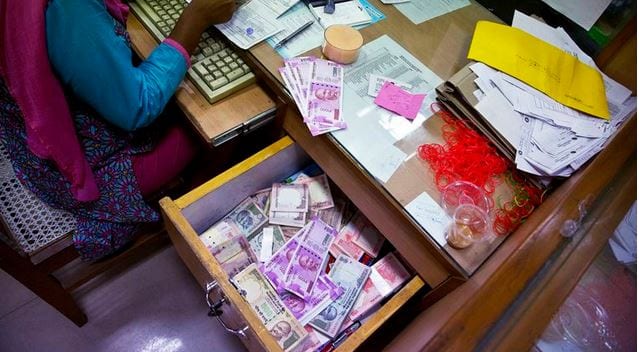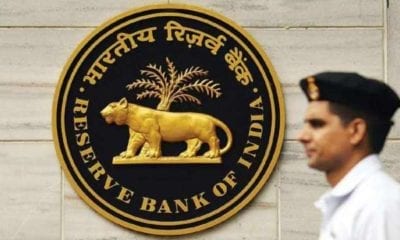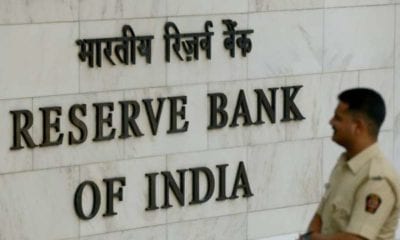Banking
RBI takes sharp u turn on Rs 5000 deposit limit for KYC accounts

The RBI has taken a sharp u turn over posing restrictions on bank deposits exceeding Rs 5000 in old notes have been withdrawn by the central bank. A circular was issued to banks on Wednesday in which it was informed that the restriction have been revoked after reviewing the case.
On Monday the RBI announced that deposits in old notes will be limited to Rs 5000, and those who want to submit more amount will come to scrutiny. “Tenders of specified bank notes (SBN) in excess of Rs. 5,000 into a bank account will be received for credit only once during the remaining period till December 30, 2016,”
It was also specified that the customers will have to answer questions such as why they could not deposit demonetised notes so far, and the bank will only accept the old currency only after they feel that the reply was satisfactory and then only the amount would be credited in the accounts.
Finance Minister Arun Jaitely even clarified that the amount deposited more than Rs 5000 will not be scrutinized by the tax authorities but repeated deposits by same account holder might raise questions. This decision of the Government was quite confusing because according to the initial decision Government clearly said that anyone can submit up to Rs 2.5 lakh in their accounts and there will be no questioning and scrutiny but this decision made people feel cheated and this fresh drive came under heavy criticism from the opposition parties.
Rahul made a statement that RBI is changing rules like PM Narendra Modi changes his clothes.
Here is the full text of the RBI circular issued today:
“Please refer to our circular DCM (Plg) No. 1859/10.27.00/2016-17 dated December 19, 2016. On a review of the above, we advise that the provisions of the above circular at sub para (i) and (ii) will not apply to fully KYC compliant accounts.”
And here is the first circular:
“On a review of the provisions ii, iii and iv at C of Para 3 dealing with credit of the value of SBNs into bank accounts it has been decided to place certain restrictions on deposits of SBNs into bank accounts while encouraging the deposits of the same under the Taxation and Investment Regime for the Pradhan Mantri Garib Kalyan Yojana, 2016 as indicated below:
Tenders of SBNs in excess of ₹ 5000 into a bank account will be received for credit only once during the remaining period till December 30, 2016. The credit in such cases shall be afforded only after questioning tenderer, on record, in the presence of at least two officials of the bank, as to why this could not be deposited earlier and receiving a satisfactory explanation. The explanation should be kept on record to facilitate an audit trail at a later stage. An appropriate flag also should be raised in CBS to that effect so that no more tenders are allowed.
Tenders of SBNs up to ₹ 5000 in value received across the counter will allowed to be credited to bank accounts in the normal course until December 30, 2016. Even when tenders smaller than ₹ 5000 are made in an account and such tenders taken together on cumulative basis exceed ₹ 5000 they may be subject to the procedure to be followed in case of tenders above ₹ 5000, with no more tenders being allowed thereafter until December 30, 2016.
It may also be ensured that full value of tenders of SBNs in excess of ₹ 5000 shall be credited to only KYC compliant accounts and if the accounts are not KYC compliant credits may be restricted up to ₹ 50,000 subject to the conditions governing the conduct of such accounts.
The above restrictions shall not apply to tenders of SBNs for the purpose of deposits under the Taxation and Investment Regime for the Pradhan Mantri Garib Kalyan Yojana, 2016.
The equivalent value of specified bank notes tendered may be credited to an account maintained by the tenderer at any bank in accordance with standard banking procedure and on production of valid proof of Identity.
The equivalent value of specified bank notes tendered may be credited to a third party account, provided specific authorisation therefor accorded by the third party is presented to the bank, following standard banking procedure and on production of valid proof of identity of the person actually tendering, as indicated in Annex-5 of our circular cited above.”RBI









































